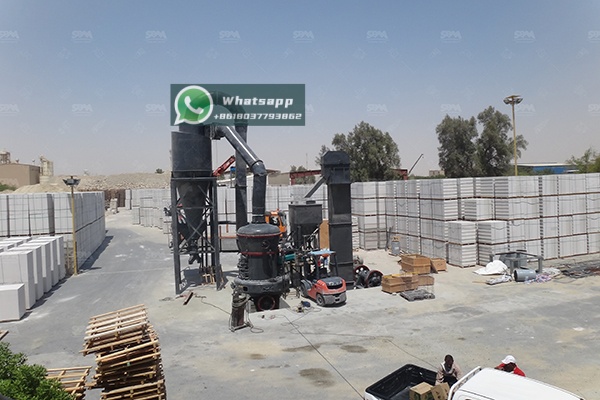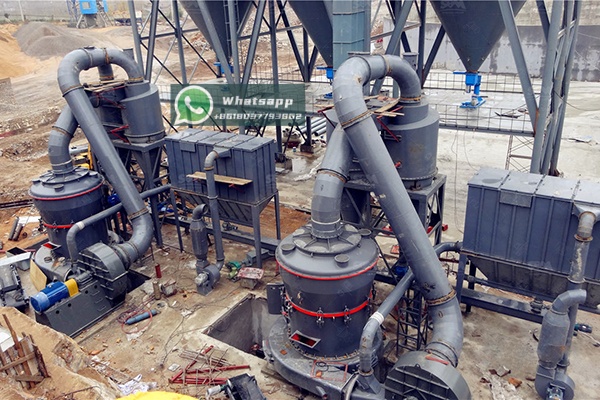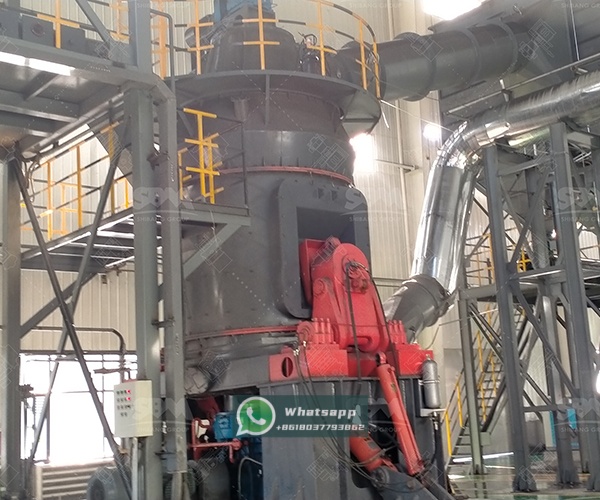The asphalt industry relies heavily on high-quality mineral fillers to enhance the performance and durability of its final product. Among these, limestone powder stands out as a premier choice. When finely ground and incorporated into the asphalt mix, limestone filler improves stiffness, reduces aging, and enhances resistance to moisture damage. The quality of this filler is paramount, and its production is dependent on one critical piece of equipment: the grinding mill. This article explores the application of Raymond Mill technology for producing superior limestone filler, a cornerstone of modern asphalt production.
Limestone is a sedimentary rock composed primarily of calcium carbonate (CaCO3). Its inherent properties make it exceptionally suitable for use as a filler in asphalt:
The transformation of raw limestone into this valuable filler requires precise grinding to achieve a consistent and fine particle size distribution, typically ranging from 75 micrometers (200 mesh) down to finer grades.

Not all grinding processes are created equal. Producing filler-grade limestone powder presents specific challenges that the milling equipment must overcome:
For decades, the Raymond Mill has been a workhorse in the mineral processing industry. Its design principles make it particularly well-suited for grinding medium-hard materials like limestone to a fine powder. The operational principle involves grinding rollers which swing outward and press against the grinding ring due to centrifugal force. The shovel blades scoop up the material and feed it between the rollers and the ring, where it is pulverized. The ground material is then blown by an air stream to a classifier, where oversized particles are separated and returned for further grinding.
Key advantages of the Raymond Mill for limestone filler production include:

While the traditional Raymond Mill is effective, modern advancements have significantly elevated its performance. Shanghai Zenith Machinery Co., Ltd., an excellent manufacturer of ore grinding equipment in China, has made great achievements in the field of ultra-fine powder grinding. Our engineers have refined the classic Raymond Mill design to create energy-efficient, high-capacity models that are perfect for the demanding asphalt filler industry.
Our Raymond Mill series benefits from upgrades such as:
For mid-to-large-scale asphalt filler production lines, we highly recommend our YGM4121 Raymond Mill. This model strikes an ideal balance between capacity, fineness, and energy consumption, making it a top choice for processing limestone.
| Model | Roller Quantity (pcs) | Max.Feed Size (mm) | Discharging Size (mm) | Capacity (t/h) |
|---|---|---|---|---|
| YGM4121 | 5 | 30 | 1.6-0.045 | 5-11 |
With a capacity of up to 11 tons per hour and the ability to produce powder as fine as 45 microns (325 mesh), the YGM4121 can reliably supply a continuous asphalt production line. Its robust construction ensures continuous operation with minimal downtime, directly contributing to higher profitability.
While the Raymond Mill is an excellent solution, specific project requirements may call for different technologies. Shanghai Zenith offers a comprehensive portfolio of grinding equipment. For projects requiring even higher capacity or slightly different product characteristics, our LM Vertical Grinding Mill presents a compelling alternative.
The LM Vertical Mill integrates crushing, grinding, powder selection, drying, and conveying into a single unit. It features a smaller footprint, higher grinding efficiency, and lower energy consumption compared to traditional ball mills. For large-scale limestone filler plants, the LM Vertical Mill is a powerhouse of productivity and efficiency.

The choice of grinding equipment is a strategic decision that impacts the quality, cost, and environmental footprint of asphalt filler production. The Raymond Mill, particularly modernized versions like Shanghai Zenith’s YGM series, remains a highly capable and efficient choice for producing high-quality limestone powder.
Shanghai Zenith Machinery Co., Ltd. is specialized in the research, development, and production of industrial powder grinding equipment. We leverage our deep industry knowledge and technical expertise to provide not just machinery, but complete grinding solutions tailored to our clients’ needs. By choosing our equipment, you invest in reliability, efficiency, and a partnership dedicated to your success in the competitive asphalt industry.
For more information on our YGM4121 Raymond Mill, LM Vertical Mills, or other grinding solutions, please contact our technical team to discuss how we can optimize your limestone filler production process.